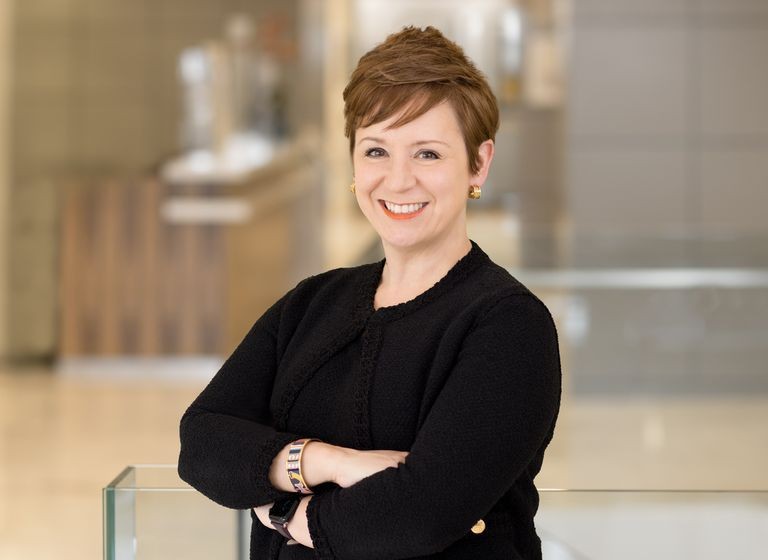Sadina Montani
Overview
Employers are facing increasingly complex compliance, cultural, and litigation matters—and Sadina Montani is a trusted adviser in each of these areas. Privately held and publicly traded corporations, think tanks, colleges and universities, foundations, retailers, and nonprofits rely on her to help navigate the full range of employment-related issues.
Career & Education
- Western Michigan University, B.M., cum laude, 2002
- The George Washington University, M.A., cum laude, 2005
- The George Washington University Law School, J.D., 2008
- District of Columbia
- Maryland
- Virginia
- Supreme Court of the United States
- U.S. District Court for the Eastern District of Virginia
- U.S. District Court for the Western District of Virginia
- U.S. District Court for the District of Colorado
- U.S. District Court for the District of Columbia
- U.S. District Court for the District of Maryland
- U.S. Court of Appeals for the Fourth Circuit
- U.S. Court of Appeals for the Eleventh Circuit
Professional Activities and Memberships
- District of Columbia Bar
- President-Elect, 2024
- Labor and Employment Section, Member
- John Payton Leadership Academy, Inaugural Class, 2013
- Screening Committee, 2015 - 2016
- Nominations Committee, Chair, 2015
- Leadership Development Committee, 2017 - 2020
- Ayuda, Chief Governance Officer, Board of Directors
- Women’s Bar Association of the District of Columbia
- Chair, Advocacy Committee, 2021-2022
- President, 2020-2021
- President-Elect, 2019-2020
- Treasurer, 2016 - 2017
- Board Member, 2015 - 2022
- Membership Committee, Co-Chair, 2011 - 2015
- Greater D.C. Diaper Bank
- Chair, Board of Directors, 2019 - 2022
- Board of Directors, 2017 - 2024
- Greater Washington Area Chapter (GWAC), Women Lawyers Division, National Bar Association, Member
- American Bar Association, Labor and Employment Section, Member
- District of Columbia Bar
Sadina's Insights
Webinar | March 26, 2025
Navigating the Complexities of Employment Law Impacting Geographically-Dispersed Workforces
Employers continue to grapple with complex legal, HR, and administrative challenges related to managing remote, hybrid, and in-person teams across multiple jurisdictions. The dynamic nature of employment laws, which vary significantly between states and are subject to frequent changes, adds another layer of complexity.
Speaking Engagement | 03.26.25
Client Alert | 3 min read | 01.23.25
Representative Matters
- Achieved full dismissal with prejudice of a reverse discrimination, gender discrimination, retaliation, and Section 1981 claims against an employer and individually named manager-defendants in federal court in Maryland.
- Achieved dismissal of multiple lawsuits challenging retailer’s enforcement of mask mandates during the COVID-19 pandemic.
- Defended an international commercial real estate company against claims of federal and state wage and hour violations in three related putative class actions in federal court in California, Colorado, and Washington, D.C.
- Successfully defended large government contractor against employee nonsolicitation and tortious interference claims; obtained complete defense award, including assessment of significant attorneys' fees, costs, and arbitrator fees against claimant.
- Won a jury trial in federal court in Miami, Florida on behalf of a global corporation in which a former employee claimed age discrimination, and subsequent appeal before the Fourth Circuit Court of Appeals.
- Achieved dismissal of a lawsuit in state court in Tampa, Florida on behalf of a global technology company where a former employee claimed race discrimination, harassment, and retaliation.
- Won summary judgment in Maryland state court on behalf of a global corporation defending against a claim related to the miscalculation of commission payments.
- Won summary judgment in federal court in Montgomery County, Maryland on behalf of a government contractor in which a former employee claimed gender discrimination and retaliation.
- Represent federal contractors in connection with defense of Sarbanes-Oxley whistleblower and False Claims Act claims.
- Defended large radiology group and individual physicians against claims by former employed physician of discrimination, defamation, and tortious interference with a future employment opportunity; obtained complete defense award in favor of all respondents on all counts, including assessment of all arbitrator fees and costs against claimant.
Sadina's Insights
Webinar | March 26, 2025
Navigating the Complexities of Employment Law Impacting Geographically-Dispersed Workforces
Employers continue to grapple with complex legal, HR, and administrative challenges related to managing remote, hybrid, and in-person teams across multiple jurisdictions. The dynamic nature of employment laws, which vary significantly between states and are subject to frequent changes, adds another layer of complexity.
Speaking Engagement | 03.26.25
Client Alert | 3 min read | 01.23.25
Insights
- |
09.26.23
Employee Relations Law Journal
U.S. Department Of Labor Issues Proposed Rule On Independent Contractors
|01.23.23
Employee Benefit Plan Review
When it Comes to #MeToo in the Workplace, the Work Is Never Over
|11.19.18
Bloomberg Law
Addressing Sexual Harassment in the #MeToo Era: The Same Old Workplace Training Won’t Cut It
|06.21.18
Corporate Compliance Insights
- |
05.04.18
Corporate Compliance Insights
Addressing Sexual Harassment in the #MeToo Era: The Rights of the Alleged Harasser
|03.28.18
Corporate Compliance Insights
Addressing Sexual Harassment in the #MeToo Era: Best Practices for Investigating Allegations
|02.08.18
Corporate Compliance Insights
Practices
Industries
Sadina's Insights
Webinar | March 26, 2025
Navigating the Complexities of Employment Law Impacting Geographically-Dispersed Workforces
Employers continue to grapple with complex legal, HR, and administrative challenges related to managing remote, hybrid, and in-person teams across multiple jurisdictions. The dynamic nature of employment laws, which vary significantly between states and are subject to frequent changes, adds another layer of complexity.
Speaking Engagement | 03.26.25
Client Alert | 3 min read | 01.23.25





